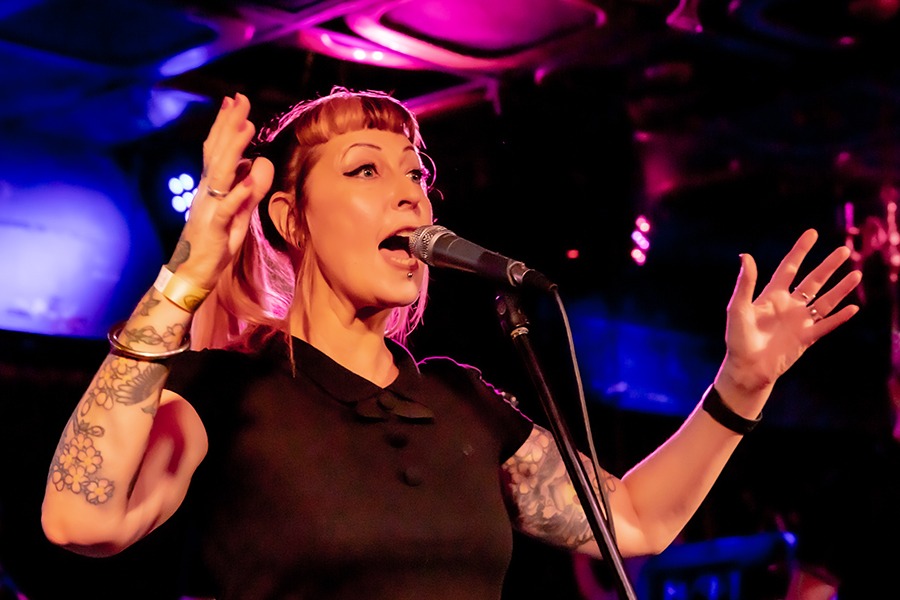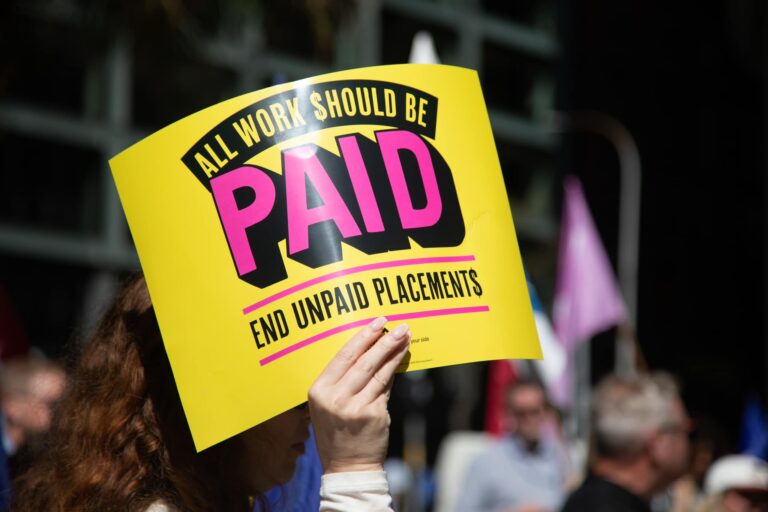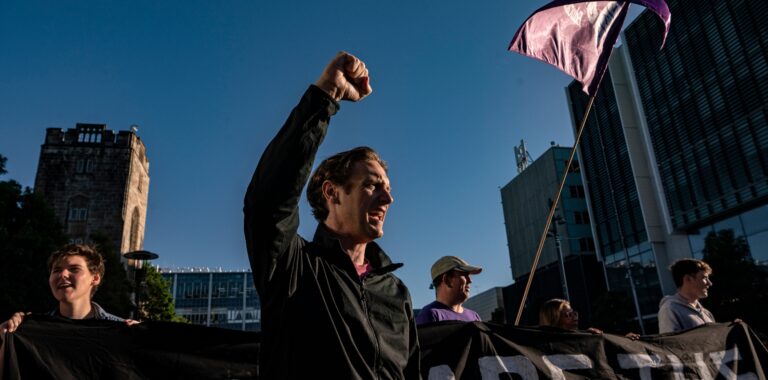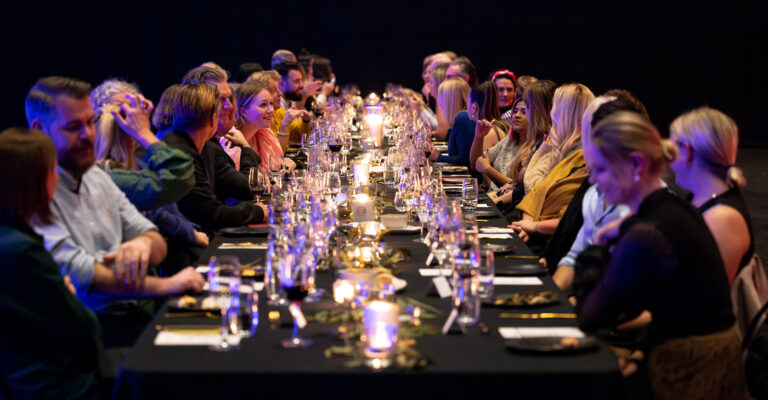
Facebook ‘bans’ Sydney ska musicians

By ALEC SMART
Musicians from Inner West Sydney were among thousands worldwide who were randomly picked as ‘racists’ by social media giant Facebook. Their online profiles were suspended on 9 June in a massive membership cull that was a misguided attempt by the corporation to synchronise with the Black Lives Matter social movement targeting systemic racism.
Singer Carol from popular ska band The OzSkas; reggae disc jockey Mick; and Fernz, bassist from punk band Rust, were among those struck off.
The widespread banning, determined by seemingly random computer algorithms, primarily targeted fans of ska music in USA, UK and Australia. Others who also found themselves unable to log into their online accounts were linked by activities and fashions synonymous with the ska music scene, such as motor scooters, clothing labels, Doctor Martens’ boots, reggae music and dancing.
The ‘racist’ ban, which was reversed 24 hours later by Facebook administrators after an international outcry, resulted in loss of income for many, including clothes and record sellers.
One of those affected was Neville Staple, singer with English band The Specials, who is black.
Staple and his wife Sugary took to Twitter, a microblogging service rivalling Facebook, to call out the social networking behemoth. Swearing in Jamaican Creole, Staple posted a ‘tweet’: “Caca faat! You couldn’t make it up!! My wife @SugaryStaple & I get banned for 24 hours – no explanation or apology. The World has gone nuts!”
Sugary also directly criticised Facebook administrators, who have their own Twitter accounts, with the tweet: “#FacebookDisabled @Facebook has disabled hundreds (probably thousands) of accounts tonight! Mine @NevilleStaple & @No1SkaMama too. Lockdown of the mind! @facebookapp @FacebookAppDev @fbnewsroom.”
After his account was re-established, Staple again tweeted advice to Facebook: “Please look into things before doing a general cull. Unity runs through the veins of me and Sugary Staple plus all our 2Tone Ska community’s veins.”
The Specials were pioneers of the Two-Tone era of British popular music that gained prominence in Britain in the early 1980s. Two-Tone fused Jamaican ska music with political elements of punk rock and was named after the Coventry-based 2-Tone Records, founded in 1979 by Specials’ keyboardist Jerry Dammers.
Staple is known for his ‘toasting’ vocal style which utilises chants and spoken word over a repeating rhythm. Toasting began in Jamaica and is regarded as a forerunner to rapping.
What is Ska?
Ska originated with black musicians in Jamaica in the late 1950s and is a stylistic fusion of calypso, jazz and ‘shuffle’ blues. Ska is distinguished by a characteristic bounciness that highlights the ‘off’ beat in 4/4 time – which, when strummed on a guitar, means emphasising the second and fourth up strokes (called the ‘skanks’) instead of the traditional down strokes found in blues and folk music. This makes for a very danceable rhythm.
Caribbean music was imported to Britain via the ‘Windrush Generation’, between 1948 and 1970, when around 500,000 people were invited to the UK from Caribbean countries such as Barbados, Jamaica, Trinidad and Tobago to aid Britain’s post-war recovery.
The Windrush name derives from the ship MV Empire Windrush, which brought the first 500 Jamaicans to Essex, London, on June 22 1948, including famous calypso singer Lord Kitchener. June 22 is now designated Windrush Day in the UK.
Ska spread in popularity via the skinhead, ‘rude-boy’ and ‘rude-girl’ subcultures that socialised in dancehalls and live music venues in both Jamaica and Britain in the 50s-60s, whose dress was characterised by sharp suits, thin ties and trilby or ‘pork pie’ hats. This was embraced by Britain’s late 1970s Mod revival and burgeoning punk rock scenes, which also adopted the reggae and rocksteady music that evolved from ska.
DJ and film director Don Letts, a black London-based Jamaican with a characteristic mane of dreadlocked hair, elaborated on the scene’s multicultural harmony in his 2016 documentary The Story of Skinheads. “When I tell people my first point of entry into youth subculture was via skinheads they look somewhat confused, not understanding I’m talking about the fashion version, not the fascist version… I hope my film goes some way to clarifying what was the UK’s first real multi-cultural movement.”
Explaining the inter-racial fusion that spawned the musical subculture, he said there was a “brilliant cultural collision between the young white working-class kids and their Jamaican counterparts in British inner cities, a moment of racial harmony.”
Farcebook
It appears Facebook administrators were intent on identifying and removing supporters of far-right white supremacist groups, which often attract neo-Nazi skinheads on the fringes of the punk and heavy metal rock scenes.
However, although there are skinheads who promote racist ideologies, Facebook’s ill-conceived targeting of ska music fans suggests the department tasked with weeding out racists from their membership lacked the intellectual judgement to differentiate between multicultural skinheads, who enjoy Jamaican-oriented music, and politically-driven fascists with shaven heads.
Among those affected in Sydney were inner-west ska DJ Mick, who for over 11 years has hosted the Uptown Top Ranking club nights in venues across Sydney, latterly The Moshpit in Erskineville. Mick plays a selection of ska, rocksteady, reggae and punk classics.
Mick told City Hub: “I first logged onto Instagram and saw loads of my friends in the USA were complaining about being locked out of their Facebook accounts. Then when I tried to log into my own Facebook page I found I couldn’t get in either.
“Initially I suspected it was a scam, because I was asked to show some ID, and I thought Facebook had been hacked by gangsters trying to steal people’s identity. I’m not sending scammers my passport or driver’s license! So I let it lie.”
The DJ, who immigrated to Australia from London and is himself a descendent of Irish immigrants, was perplexed and angered that Facebook associated him with racist groups. “I’ve got no idea what caused it because I’ve definitely got no connection to white power groups or anything like that, I avoid them like the plague! I’ve never liked anything to do with racism and if I’m friends with anyone who is linked to racist groups it is unknowingly.”
Another who found her Facebook profile inaccessible was Carol Bernhard, singer with ska band The OzSkas, which play a mixture of their own ska, rocksteady and reggae compositions, plus classics from the scene’s rich 70-year-history, and more contemporary Two-Tone era hits from The Specials and their ilk.
The OzSkas, which performed at a Rock Against Racism concert in Marrickville in Sept 2019, feature Marty Fabok on guitar, who also plays with Allniters, arguably the founders of ska music in Australia and known for their 1983 top 20 hit Montego Bay.
Carol told City Hub “It is important that social platforms like Facebook educate themselves around subcultures, what they are about and what they constitute. Particularly with 2-Tone being about black and white equality, and the whole skinhead movement.
“It’s a typical example on how misinformation (in particular this instance skinhead culture) by media is given and passed onto the general public, who believe the negative information, instead of enlighten all and the positive truth of this amazing and important subculture. It affected so many people, including Facebook businesses.
“Facebook need to rethink moderation policies. You can only hope they have learnt something, from the backlash.”
In recent weeks Facebook and its founder Mark Zuckerberg (among the 100 wealthiest and most influential people in the world with a wealth estimated at $55 billion) has faced criticism for allowing Donald Trump’s frequently dishonest and often racist comments to go unchecked, whilst simultaneously censoring Palestinian groups claiming racial prejudice in Israel.
This has led to Facebook staff walkouts and employees signing an open letter of complaint.
By contrast, Facebook’s rival, Twitter, recently began attaching fact-check notices to President Trump’s media posts, warning readers if they contained unverifiable or dishonest claims.
In response to the mass banning of ‘racists’, a Facebook spokesman said: “We apologise to those affected by this issue. These accounts were removed in error and have been reinstated. We are reviewing what happened in this case and are taking steps to ensure it doesn’t happen again.”









